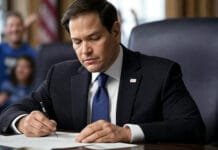INVC NEWS
New Delhi : Discover the latest developments in the negotiations between India and Britain for a Free Trade Agreement. Learn how both countries are bridging differences to unlock unprecedented trade opportunities and strengthen their economic ties.
Introduction
In a significant development, India and Britain are on the cusp of completing negotiations for a proposed Free Trade Agreement (FTA). This landmark agreement holds the promise of fostering stronger economic ties between the two nations and opening up new avenues for trade and investment. Despite facing some challenges along the way, both countries have shown determination to resolve their differences, laying the groundwork for a thriving bilateral relationship. In this article, we delve into the details of the negotiations, the areas of contention, and the potential impact of the FTA on various sectors.

The Road to a Historic Trade Deal
The negotiations between India and Britain have been an arduous yet fruitful journey. The 11th round of FTA talks, spearheaded by Commerce and Industry Minister Piyush Goyal and Commerce Secretary Sunil Barthwal, has just concluded in London. During this dialogue, the two countries have discussed 26 crucial areas of trade collaboration. Encouragingly, agreements have been reached on 19 of these areas, reflecting the shared commitment to strengthen economic cooperation.
Resolving Key Points of Disagreement
Among the sticking points that both nations are actively addressing are issues pertaining to investment treaties, intellectual property rights (IPR), and the rules of origin for products. These are critical matters that require careful consideration to ensure a fair and mutually beneficial trade environment. By engaging in open dialogues and negotiations, India and the UK are making commendable progress toward bridging their differences.
Paving the Way for Trade in Vehicles and Liquor
One of the notable breakthroughs in the negotiations lies in the trade of vehicles and liquor. Substantial headway has been made in these sectors, setting the stage for increased trade opportunities. The removal of barriers and tariffs in these areas can lead to a boost in exports and greater access to quality products for consumers in both countries.
A Timeline of Determination
The timeline of the FTA negotiations has not been without its challenges. Initially aimed for completion before Diwali last year, the process encountered a setback due to political instability in Britain. However, both India and the UK demonstrated resilience and renewed their efforts to resume discussions once the political climate stabilized. This determination and perseverance underscore the significance both nations attach to fostering a stronger economic partnership.

The Potential Impact on Business and Economy
1. Enhanced Market Access and Diversification
The successful conclusion of the FTA would significantly enhance market access for businesses in India and Britain. Reduced tariffs and streamlined trade regulations would enable companies to explore new avenues for growth and expansion. By diversifying their markets, businesses can mitigate risks and capitalize on emerging opportunities.
2. Boosting Exports and Investment
With fewer trade barriers, Indian exporters can gain increased access to the British market and vice versa. This can lead to a surge in exports of goods and services, benefiting various sectors of both economies. Moreover, the FTA may attract more foreign direct investment (FDI) flows, as investors find the ease of doing business between the two countries appealing.
3. Strengthening Ties in Key Sectors
The FTA holds the potential to strengthen collaboration in strategic sectors such as technology, pharmaceuticals, automotive, and renewable energy. The exchange of expertise, resources, and technology in these areas can foster innovation and drive economic growth.
4. Empowering Small and Medium Enterprises (SMEs)
The agreement could prove particularly advantageous for SMEs in both nations. By simplifying trade procedures and reducing administrative burdens, SMEs can expand their reach and participate more actively in cross-border trade.
Conclusion
The India-UK Free Trade Agreement is on the verge of becoming a reality, marking a momentous milestone in the economic relationship between these two nations. As they near the finish line in negotiations, both India and Britain have showcased their commitment to finding common ground and forging a partnership that will benefit their economies and people alike. The potential impact on various sectors, from trade and investment to technology and SMEs, makes this FTA a crucial step towards a more interconnected global economy.
















